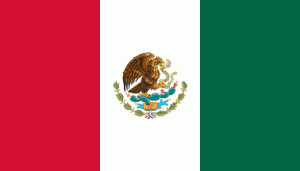 Mexico’s Economy Minister Ildefonso Guajardo gave a briefing in Mexico City about the state of the TPP negotiations, which he said may be completed by the end of April. He said that the Singapore Ministerial helped move the negotiations along, with potential compromises on sensitive topics identified (though not finalized). Of interest to infojustice readers, he also described the state of play on some particular items in the intellectual property chapter.
Mexico’s Economy Minister Ildefonso Guajardo gave a briefing in Mexico City about the state of the TPP negotiations, which he said may be completed by the end of April. He said that the Singapore Ministerial helped move the negotiations along, with potential compromises on sensitive topics identified (though not finalized). Of interest to infojustice readers, he also described the state of play on some particular items in the intellectual property chapter.
Guajardo said that negotiators are coming to agreement on a copyright term of author’s-life plus-70-years, but most countries are still opposed to the U.S. positions on criminal penalties for camcording, and notice-and-takedown. As described by Matt Schewel in an Inside U.S. Trade story:
On the issue of copyright terms, Guajardo said TPP ministers coalesced around a proposal that would require countries to protect copyrighted works for 70 years after an author’s death, although they had not formally agreed to it. That is in line with the U.S. proposal, although Mexico had proposed a longer term of 100 years after the author’s death in accordance with its own law.
Another IP issue that ministers discussed in Singapore was a U.S. proposal that TPP countries be required to provide criminal penalties for video recording in movie theaters, according to Guajardo. He said that proposal is opposed by other TPP countries, which prefer to apply only civil penalties.
“It’s a topic of debate where we have two positions and we are trying to reach an agreement where the penalties themselves and the enforcement will be a way to convince the countries that want criminal penalties, that we can be effective with other instruments,” he said.
Guajardo said another IP issue where there are still two competing positions is the system that countries would have to put in place for internet service providers to remove infringing content posted by their users. He said most TPP countries are opposed to the U.S. demand that countries put in place a “notice and takedown” system, akin to what exists in the United States.
Under that system, service providers can escape liability for hosting infringing content if they remove it upon notice from a right holder. But other TPP countries argue that right holders should have to go through an administrative or judicial process controlled by the government in order to compel removal of infringing content, according to Guajardo.
“The large majority of [TPP] countries consider that it is not appropriate to give this responsibility to the [service] providers, but that this should be a responsibility of the state, of governments,” he said.
A couple of weeks ago, Australian Trade Minister Andrew Robb told The Australian that the TPP is “ready to be sealed. A few big things have to end up back on the table yet, but it is close.” He also said that he thought the agreement will be wrapped up in the first half of 2014.




